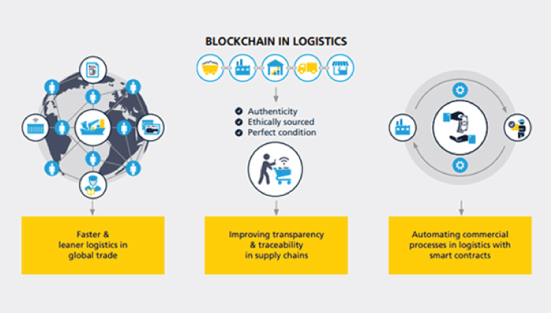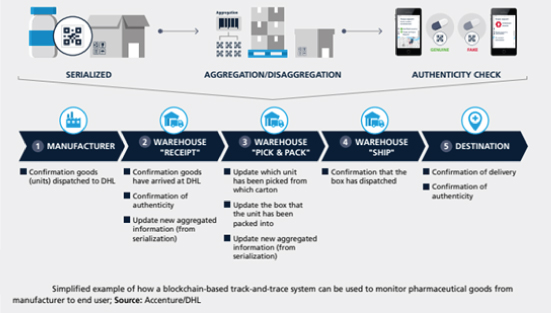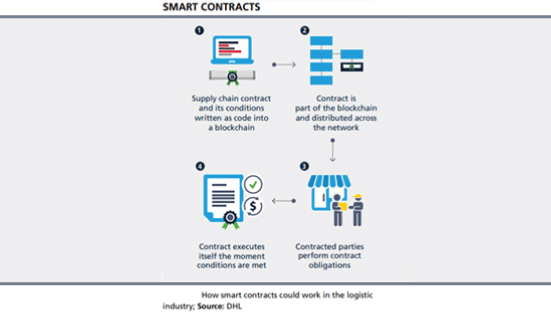Blockchain in Logistics
Logistics Business Today
The logistics business is characterised by low transparency, a lack of standardisation, large amounts of data generation, and a variety of technology adaptations due to its scattered and competitive nature. Many logistics-related operations are constrained by manual procedures required by regulatory bodies like customs. All of this causes friction in business by making it challenging to trace the origin of items and the status of shipments as they move through the supply chain.
Blockchain, perhaps, can assist in reducing friction and increasing efficiency of processes. It may make data more transparent and accessible to interested parties, establishing a single source of truth. The blockchain technology's security mechanism provides the confidence that is necessary for stakeholders to communicate information.
Blockchain can reduce operational costs with its automated error-free processes. With the addition of predictability and visibility to logistical operations, the physical flow of goods can be substantially accelerated. Origin tracking of goods will ensure responsibility and sustainability to the supply chain and will help in tackling the counterfeiting of products.
Blockchain can be employed in the logistics sector as a distributed ledger to improve transparency throughout the life of a shipment. Blockchain data is decentralised and immutable once it has been established, allowing for the creation of a secure and open information trail that would track a shipment from its origin to its destination. Decentralization makes it unlikely that a system may be overthrown by a localised malfunction or attack. This would lead to more efficient operations, cheaper transactions, and more secure and dependable data transmission among stakeholders.
But, to do so, all parties involved must adhere to the same set of norms, which is where the Blockchain in Transport Alliance comes into its own.

Blockchain in Transport Alliance (BiTA)
A group of major firms including DHL, J.B. Hunt, FedEx, UPS, BNSF, Maersk, and many others, has come together to create a set of standards that could make the adoption of blockchain in the sector easier. Blockchain in Transport Alliance (BiTA) is a platform for the trucking, transportation, and logistics sectors to develop and utilise blockchain technologies. The goal of BiTA standards is to establish a uniform framework that will aid businesses in developing and implementing blockchain technology.
Working in cooperation with others to streamline the movement of tangible things as well as flow of information and financial transactions will lead to excellence in logistics.


About the FutureSkills Prime Programme:
FutureSkills Prime, a collaborative effort by nasscom and MeitY, serves as India's technology skilling hub with the objective of transforming the nation into a Digital Talent Nation. The program facilitates widespread access to learning, empowering both students and professionals to enhance their digital expertise and professional competencies. The comprehensive range of courses available through FutureSkills Prime encompasses a diverse array of digital technologies and vital professional skills.
NIELIT Patna

